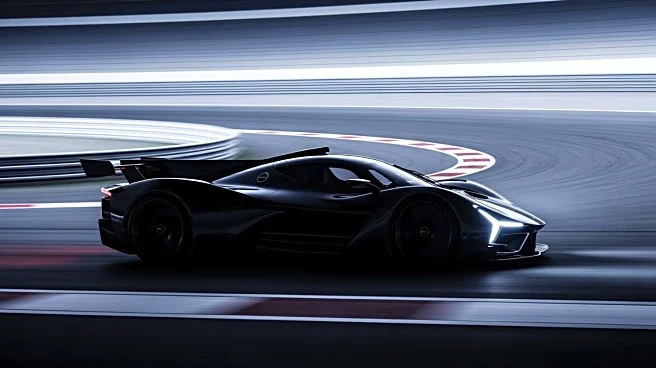What's Happening?
The YANGWANG U9 Xtreme, a high-performance electric hypercar from BYD's luxury sub-brand, has set a new lap record for electric super sports cars at the Nürburgring Nordschleife. The vehicle completed
the circuit in 6 minutes and 59.157 seconds, breaking the previous record by over five seconds. This achievement marks the first time an electric super sports car has completed the track in under seven minutes. The U9 Xtreme is built on a 1200V ultra-high-voltage platform and features four high-performance motors, delivering a total output of over 3,000PS. The car's development included extensive testing at the Nürburgring, and it incorporates advanced technologies such as a redesigned cooling system and a titanium-alloy carbon-ceramic braking system.
Why It's Important?
This record-setting performance underscores the rapid advancements in electric vehicle technology, particularly in the high-performance segment. The achievement highlights BYD's commitment to pushing the boundaries of electric vehicle capabilities, which could influence the broader automotive industry by setting new benchmarks for performance and efficiency. The success of the U9 Xtreme may encourage other manufacturers to invest in similar technologies, potentially accelerating the transition to electric vehicles. Additionally, the record reinforces the viability of electric vehicles in competitive motorsport environments, which could shift public perception and increase consumer interest in high-performance electric cars.
What's Next?
Following this achievement, BYD plans to produce a limited run of 30 units of the U9 Xtreme, targeting enthusiasts and collectors. The company may continue to leverage its technological advancements to develop future models, potentially expanding its presence in the luxury electric vehicle market. The record may also prompt other automakers to attempt similar feats, fostering innovation and competition in the electric hypercar segment. As the industry evolves, regulatory bodies and motorsport organizations might adapt their frameworks to accommodate the growing presence of electric vehicles in competitive racing.









